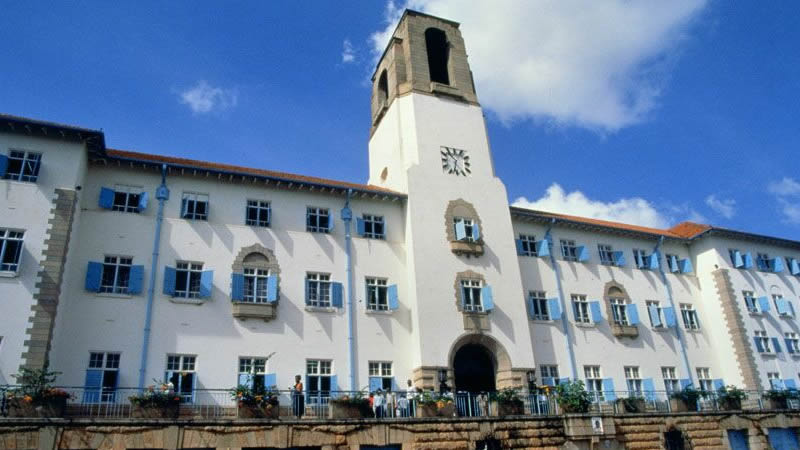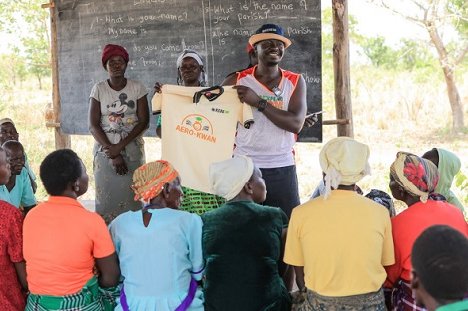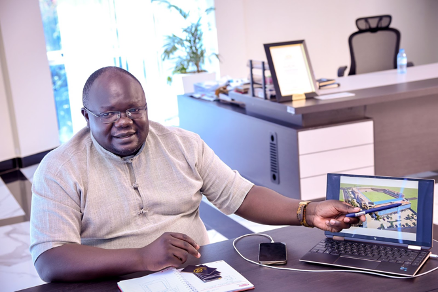By Mark Wamai
Imagine joining an institution as a student in your late teens, securing a job immediately after completing your undergraduate degree and proceeding to work there in various managerial roles for close to 44 years until your retirement. Amazing, right? Well, that’s the story of Associate Professor Helen Byamugisha’s career at Makerere University, whose service she joined in 1979 soon after completing her Bachelor of Science (Botany/Zoology) and officially left on 30th June 2023 at the age of 67.
To put this into perspective, Byamugisha spent more time living and working at Makerere than anywhere else. “That’s a whole lifetime,” she summarily puts it. “That’s my home; it’s more of a home to me than the place of my birth,” she adds.
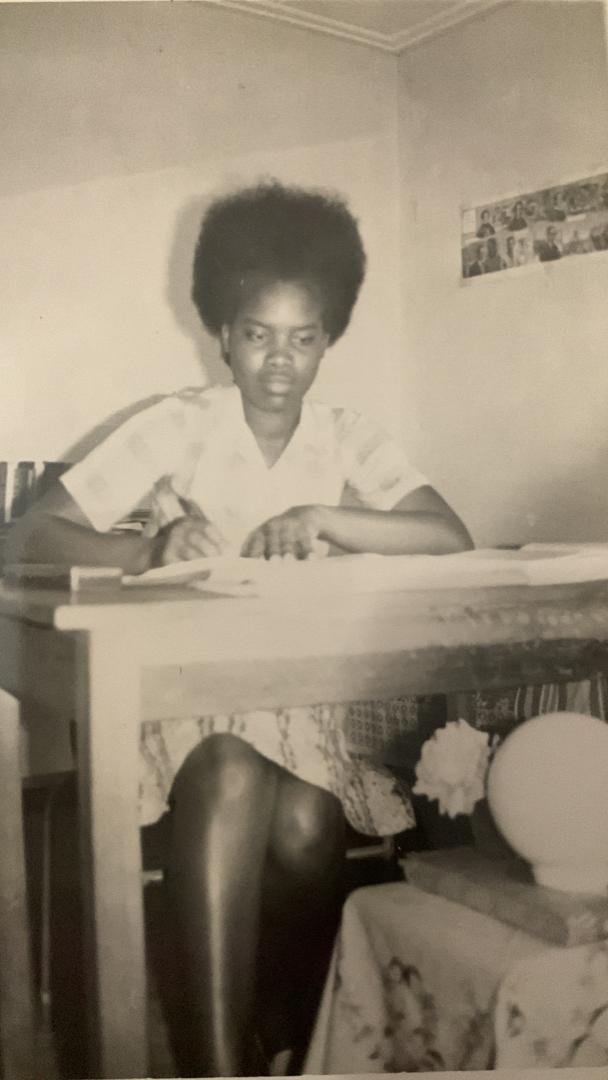
Prof. Helen Byamugisha during her days on Campus at Makerere University in the 70s
Byamugisha was born in the misty hills of Kisoro district in Uganda’s South Western corner. As a third child, she was always keen to follow in the footsteps of her two elder siblings and therefore eager to go to school. “I loved school and I was such a bright kid, which made me a darling to my teachers.”
This rosy picture was shattered when on 8th October, the eve of Uganda’s independence, news broke that her father, whose dedication to educating his children was well known, had been murdered. His body was never recovered despite relentless searches. “That day, even as a child in P.2, I sort of grew up and could tell that my education was in jeopardy.”
Help from family
Fortunately, she was taken up by her father’s cousin who upon completing college, had been posted to Kabale as a teacher in a girls’ school. Her dreams of education were back to life, albeit with a twist— relocating from Kisoro to Kabale. “Unfortunately, I did not know a single word of Rukiga and so I never spoke to my classmates but at the end of the first term in P.3, I topped the class.” This one act caused such a stir that curious pupils from the neighbouring boys’ school had to come and see for themselves the “dumb performer” they had heard so much about.
As a star performer, Byamugisha’s guardians knew that her future was bright, and that she was capable of studying in, and should join one of the top girls’ schools in the land, Gayaza High School. Unbeknownst to them, Byamugisha had heard of Mary Hill High School, and because its “beautiful” name sounded “like it belonged in Kampala” she had vowed to put her first choice there, a decision that utterly shocked her mentors when her excellent results returned.
Fortunately, it was love at first sight when she eventually reported to Mary Hill High School in Mbarara and saw how neat and well-organised it was. The warm welcome by the senior girls assigned to oversee their welfare filled her heart with gratitude and allayed all her fears.
“That first night, I knelt on the top bunk of my double-decker bed and asked God to forgive me for constantly lamenting ‘if only I had a father’ because I didn’t see any of the people I studied with in primary school, who, despite having fathers, had not made it to this wonderful school,” remarked Byamugisha.
The government’s promotion of science-based subjects is not a new policy. Upon excelling at Maryhill, the officials in charge of selecting Advanced (A) Level subject combinations chose Biology, Chemistry and Geography for Byamugisha, a combination she undertook at Trinity College Nabbingo, where she equally excelled to join Makerere University.
Seeing Makerere for the first time
“My first shock upon arriving at Makerere was that it was so big, and there was a possibility of getting lost. The first thing I did was to learn the geography of Makerere from the Main Gate to the Faculty of Veterinary Medicine and all other locations including the Library, Chapels and the Faculty of Science, where most of my classes were held,” she said.
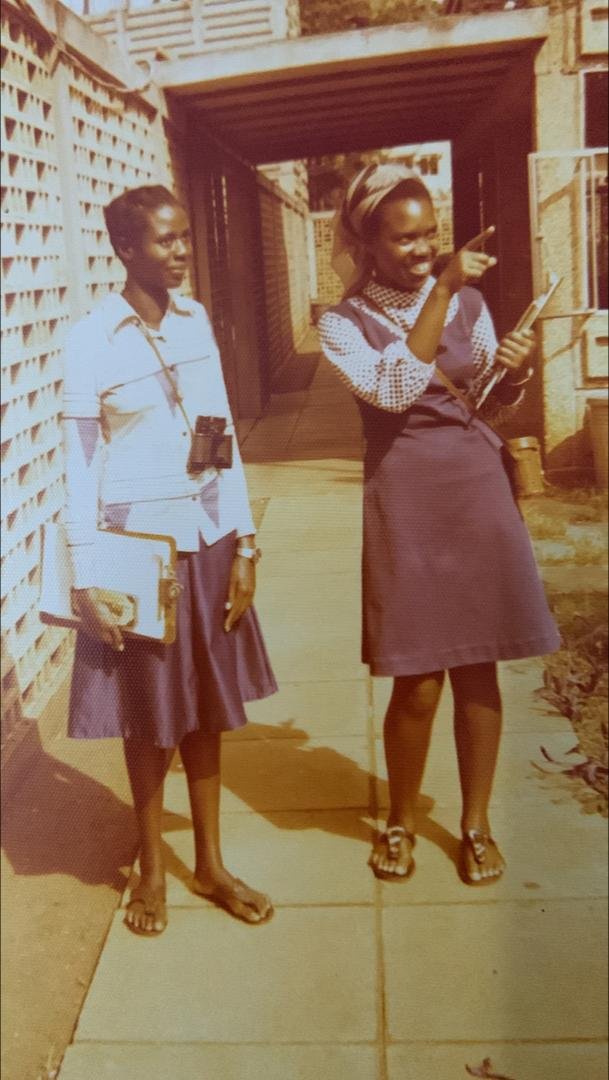
Prof. Helen Byamugisha (Right) with a colleague at Africa Hall on their way to view birds with binoculars as part of their course work.
The campus geography covered, Byamugisha had to grapple with another cultural shock— benching. “After the freshers’ orientation week, the boys were constantly swarming our rooms; each one of them wanted to be the last one to leave and each one of them wanted to be your boyfriend!” She escaped the benchers by slipping off to the library before they arrived, determined not to be distracted from her academic goals.
Byamugisha describes herself as one who is always content, lives modestly and within her means. This attribute proved valuable throughout her undergraduate degree at Makerere, where, despite the harsh economic times of the 70s, she frugally used the resources from her benefactor to buy all that she needed for the term in bulk and regularly saved the little that remained. And just as in today’s setting, fresh graduates then often grappled with unemployment. The situation was no different for Byamugisha in 1979.
“When I graduated, there were no jobs to come by. We did countless interviews to no avail.” However, as fate would have it, it was a vacation job at the University Bookshop that she did diligently during her end of second year break that handed her a lifeline. “I met the manager who, upon listening to my futile search for a job, invited me to join the bookshop and continue from where I had stopped as a vacationer, but work on temporary terms as assistant manager!”
What initially began as a temporary arrangement lasted until 1988 when the position of assistant manager (the one she had occupied), was advertised by the University. Encouraged by the bookshop manager, she applied, emerged the best candidate and officially joined Makerere University service on permanent terms. “As a former science student, I specialised in this new vocation, learnt a lot, did a very good job, and taught myself a lot of things. I saw myself working there for quite some time.”
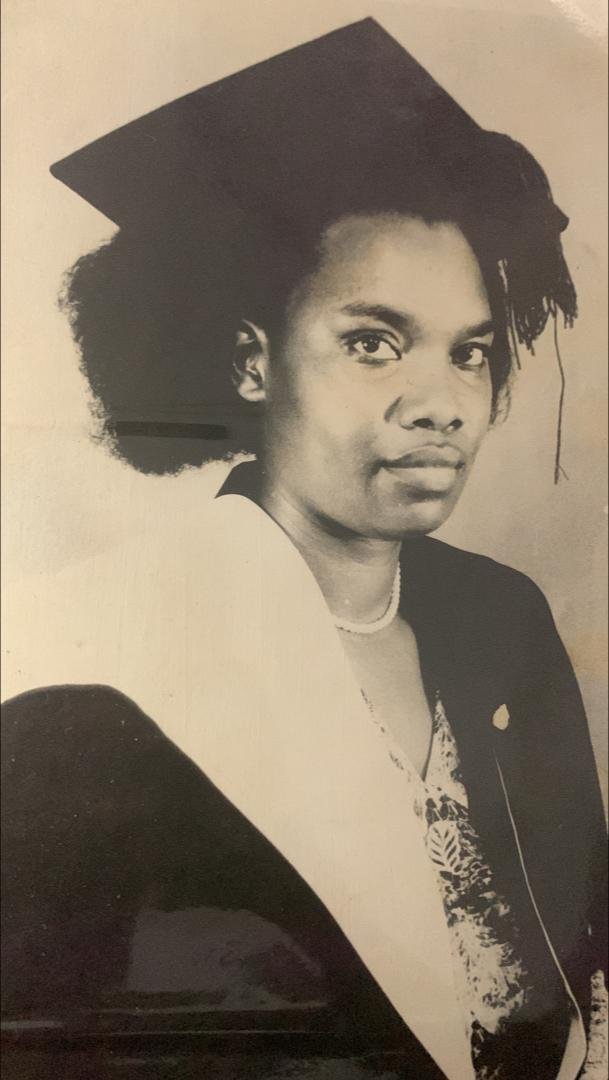
Prof. Helen Byamugisha upon graduating in 1979
This euphoria however, did not last. The merits of being a smart employee are that you soon learn the intricacies of your job and as such, become more efficient. The demerits however, are that you soon start to feel unchallenged. “I didn’t have to work hard to do my job, I knew everything by heart and had no job satisfaction at this level. I felt that I needed a job that was more challenging other than dealing with books on a daily basis. I hence wrote to the University Secretary and requested to be transferred to anywhere as long as I did not have to work with books,” she recalled.
Entry into the library
When Byamugisha joined the University Bookshop, each Ugandan student used to receive a textbook and stationery allowance. Under this arrangement, the acquired textbooks became personal property of the students who took them when they completed their studies. As the number of students continued to grow, the budget became inadequate. The textbook allowance became unsustainable and the bookshop could not adequately meet the students’ book needs. In response, the university started a book bank system in 1990 at the main library. This was a government-funded project whose major objective was to ensure availability of basic textbooks to students. The textbooks acquired under the book bank arrangement became property of the university and students no longer took them away when they completed their studies.
As fate would once again have it, the university needed a person to manage the book bank. The credentials of the applicant for immediate transfer from the University Bookshop were a perfect match. Rev. Canon Ssentongo (the University Secretary then), immediately granted Helen the transfer she had applied for.
The very thing that Helen Byamugisha had tried to flee from — books — had boomeranged and was coming back to hit her at probably three times more volume and at a whole new multi-institutional level. Depressed and feeling dejected upon receiving the letter transferring her to the book bank, Byamugisha sought an audience with the University Secretary. At the meeting, his humility and counsel won her over. He encouraged her to not only take on the new role, but also an entirely new career path.
“Helen, I want to talk to you, not as the University Secretary but as your father,” she recalled his opening words. Touched by the very mention of the word “father”, he had her undivided attention. He acknowledged receiving her letter, which he admitted made her the best fit for the new role. He shared his predicament with accountability queries from the Auditor-General regarding the book bank. The money for procuring the books used to come directly from the Bank of Uganda and needed to be accounted for promptly. The University Secretary asked her to even consider a career in librarianship, “which unlike in Uganda is a strong and highly respected profession overseas” he added.
Buoyed by the interaction with him, in 1994, Byamugisha was transferred to the library where with renewed vigour, she set up the book bank. In 1995, she enrolled for a Post Graduate Diploma in Librarianship at the East African School of Library and Information Sciences (EASLIS), fully paid for by the university. “Within the first two weeks I was converted because my perception of the library completely changed from being all about books and buildings to being about information. I learnt that information is power, is the engine for development, and that it enables people to make informed choices towards improving their livelihoods.”
Further studies
With a burning urge to learn even more about the field, in 1998 she funded herself as one of the pioneers of the Master of Science in Information Sciences at Makerere, completing it in record time in 1999. The Masters birthed in her the urge to prove what they’d always been taught, that is, information is an applied science. This led her down the path of applying information to scientific problems and multidisciplinary research. “My first research was to do with the water hyacinth which had infested Lake Victoria and River Nile, killing fish and other aquatic flora and fauna.”
Byamugisha’s unraveling of the link between information and various scientific problems awakened the researcher within her and kept her on a desperate search for PhD opportunities. Fortunately, Makerere started the PhD in Information Science programme and once again, she enrolled as a pioneer self-funded candidate. “I had saved some little money and I paid my tuition for the first semester as I prayed to God to send me sponsors.’’She didn’t have to wait long.
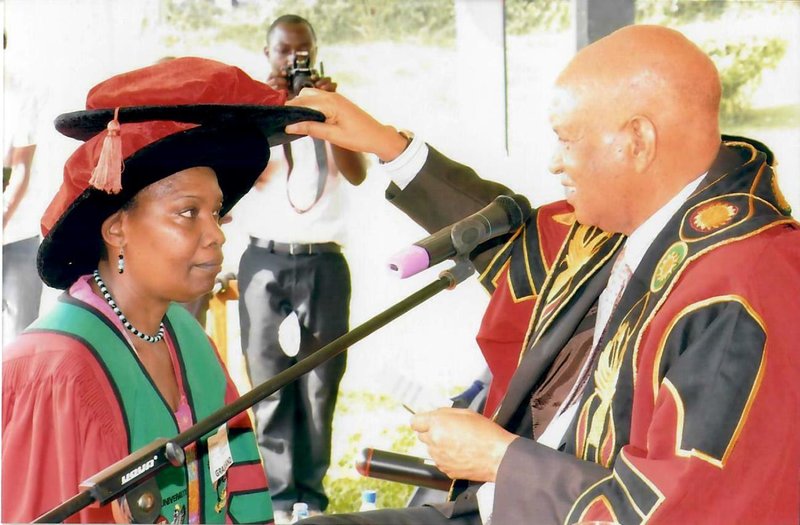
The then Chancellor of Makerere University, Prof. Mondo Kagonyera confers a PhD upon Prof. Helen Byamugisha (Left) on 17th January, 2012.
In the second semester, she secured full sponsorship from the Swedish International Development Cooperation Agency (Sida) through the Gender Mainstreaming Directorate (GMD). “‘Information Seeking and Use among Urban Farmers in Kampala City, Uganda’, was the title of my thesis. When I completed my PhD in 2012, the deputy university librarian retired and since I was already at the rank of senior librarian, I was appointed to serve as deputy university librarian.”
In January 2015, the university librarian’s contract ended, whereupon she was requested to act in that position. In 2018, the position was advertised and after a successful interview, she was appointed to the position substantively, a position she held until her retirement on 31st May, 2023. “I have been privileged not to report to any middle managers throughout my career as I was always answerable to the top managers,” she said.
Byamugisha’s parting advice after such a long and illustrious career on the Hill is, “Makerere, just like America, is a place of opportunities depending on what you want. One needs to believe in oneself, be focused, and have determination. You have to know what you want, focus on constantly improving yourself, believe in yourself, appreciate every step, have determination, and give every opportunity your all.”
Related News
![]() Please join hands with the Makerere University Endowment Fund as it works towards attracting & retaining the best faculty, providing scholarships, and investing in cutting-edge research and technology.
Please join hands with the Makerere University Endowment Fund as it works towards attracting & retaining the best faculty, providing scholarships, and investing in cutting-edge research and technology.
